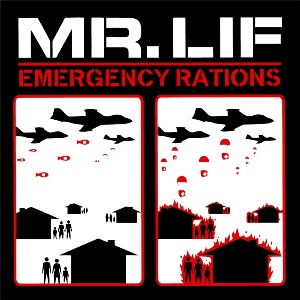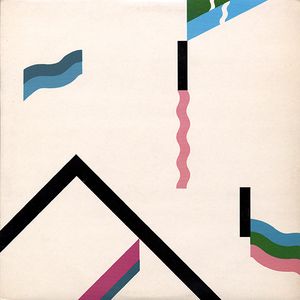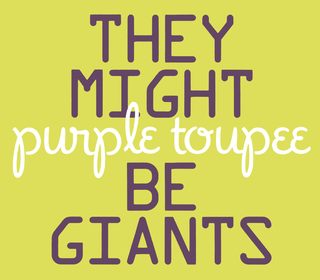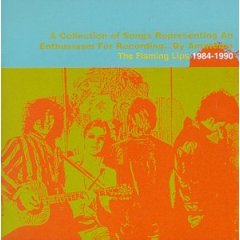
Electric Ladyland is the third and final studio album by the Jimi Hendrix Experience and the final studio album released in Hendrix's lifetime before his death in 1970. Released by Reprise Records in North America on October 16, 1968, and by Track Records in the UK nine days later, the double album was the only record from the band produced by Hendrix. By mid-November, it had charted at number one in the US, where it spent two weeks at the top spot. Electric Ladyland was the Experience's most commercially successful release and their only number one album. It peaked at number six in the UK, where it spent 12 weeks on the chart.
![Robert Christgau Writer (1942−[[Category:Errors reported by Module String]]String Module Error: Target string is empty)](https://upload.wikimedia.org/wikipedia/commons/thumb/b/b1/Robert_Christgau_02_%28cropped%29.jpg/256px-Robert_Christgau_02_%28cropped%29.jpg)
Robert Thomas Christgau is an American music journalist and essayist. Among the most well-known, revered, and influential music critics, he began his career in the late 1960s as one of the earliest professional rock critics and later became an early proponent of musical movements such as hip hop, riot grrrl, and the import of African popular music in the West. Christgau spent 37 years as the chief music critic and senior editor for The Village Voice, during which time he created and oversaw the annual Pazz & Jop critics poll. He has also covered popular music for Esquire, Creem, Newsday, Playboy, Rolling Stone, Billboard, NPR, Blender, and MSN Music, and was a visiting arts teacher at New York University. CNN senior writer Jamie Allen has called Christgau "the E. F. Hutton of the music world – when he talks, people listen."

Emergency Rations is the second EP by American rapper Mr. Lif, released on June 25, 2002, by Definitive Jux. It was recorded at Bandulero Sound in Berlin, Boston Butta Beats in Boston, and The Pool Room in New York City.

Pink Flag is the debut studio album by English rock band Wire. It was released in November 1977 by Harvest Records. The album gained Wire a cult following within independent and post punk music upon its initial release, later growing to be highly influential on many other musicians.

Pazz & Jop was an annual poll of top musical releases, compiled by American newspaper The Village Voice and created by music critic Robert Christgau. It published lists of the year's top releases for 1971 and, after Christgau's two-year absence from the Voice, each year from 1974 onward. The polls are tabulated from the submitted year-end top 10 lists of hundreds of music critics. It was named in acknowledgement of the defunct magazine Jazz & Pop, and adopted the ratings system used in that publication's annual critics poll.

"Crybaby" is a song by American singer and songwriter Mariah Carey featuring American rapper Snoop Dogg. It was released on July 20, 2000 by Columbia Records as a double A-side with "Can't Take That Away ". It was written by Carey and Snoop Dogg, and produced by the former and Damizza for Carey's seventh studio album, Rainbow (1999). It serves as the album's fourth single. It features Snoop Dogg throughout the song's bridge and is built around a sample of the 1988 song "Piece of My Love," originally performed by Guy and written by Teddy Riley, Aaron Hall, Timmy Gatling and Gene Griffin. Throughout the song, the protagonist reveals the struggles of dealing with insomnia and thoughts of a past relationship during the night, as she spirals out of control and declares "I gotta get me some sleep."

154 is the third album by the English post-punk band Wire, released in 1979 on EMI imprint Harvest Records in the UK and Europe and Warner Bros. Records in America.

Restless is rapper Xzibit's third studio album. It was released December 12, 2000. It debuted at #14 on the Billboard 200 with approximately 205,000 copies sold in its 1st week released. The album then fell 17 spots to #31 in the 2nd week, but then rose back up 19 spots to peak at #12 the following week. Also since being released the album was certified Platinum by the RIAA with an excess of a million copies sold in America making it Xzibit's most successful album of his career.

Lyman Corbitt McAnally Jr., known professionally as Mac McAnally, is an American country music singer-songwriter, session musician, and record producer. In his career, he has recorded ten studio albums and eight singles. Two of his singles were hits on the Billboard Hot 100, and six more on the Hot Country Songs charts.

In All Languages is a 1987 double album by Ornette Coleman. Coleman and the other members of his 1950s quartet, trumpeter Don Cherry, bassist Charlie Haden, and drummer Billy Higgins, performed on one of the two records, while his electrified ensemble, Prime Time, performed on the other. Many of the songs on In All Languages had two renditions, one by each group.

The Buffalo Club was an American country music group composed of Ron Hemby, John Dittrich, and Charlie Kelley. Before the group's foundation, Hemby was a vocalist in the Christian group The Imperials, Kelley played guitar for Doug Stone, and Dittrich was the drummer in the country pop band Restless Heart. The Buffalo Club released a self-titled album on the Rising Tide Records label in 1997 and charted three singles on the Billboard Hot Country Songs charts that year, including the top-10 "If She Don't Love You". By the end of the year, the band broke up, and Dittrich rejoined Restless Heart.

"Purple Toupee" is a 1988 song by alternative rock duo They Might Be Giants from their second album, Lincoln. It was released as a promotional single in 1989. In 1994, a live performance of the song was recorded for the promotional live album, Live!! New York City 10/14/94, which was released by Elektra Records.

A Collection of Songs Representing an Enthusiasm for Recording...By Amateurs is a compilation album by The Flaming Lips, released on September 29, 1998 on Restless Records.

Peter Missing is a New York City artist, poet, musician, and activist who relocated to Berlin in 1993.

A Working Man Can't Get Nowhere Today is the 26th studio album by American country singer Merle Haggard and The Strangers, released in 1977. Even though Haggard had moved to the MCA label, Capitol created this release from tracks previously recorded in 1975 and 1976.
Missing Foundation Is an industrial music and performance art project active in the late 1980s - present and led by Peter Missing. Their live shows were notorious for sparking civil disobedience and causing serious damage to venues at which they performed. The group was also infamous for their "The Party's Over" graffito of an upside-down martini glass, and was heavily involved in the Tompkins Square Park Riot in August 1988. While the band continued to produce music and concerts; a small anarchist social movement continued to exist under the same name for several years.

Go into Exile is the fifth album by Missing Foundation, released in 1992 by Restless Records.

The Ultimate Hits Collection is a compilation album by American pop singer Johnny Mathis that was released in 1998 by Columbia Records. In addition to offering several hit singles, the collection includes the first release of "Brazil ", a song that was originally recorded for his 1986 collaboration with Henry Mancini, The Hollywood Musicals, but not included in the final track selection.

Christgau's Record Guide: The '80s is a music reference book by American music journalist and essayist Robert Christgau. It was published in October 1990 by Pantheon Books as a follow-up to Christgau's Record Guide: Rock Albums of the Seventies (1981).

Christgau's Consumer Guide: Albums of the '90s is a music reference book by American music journalist and essayist Robert Christgau. It was published in October 2000 by St. Martin's Press's Griffin imprint and collects approximately 3,800 capsule album reviews, originally written by Christgau during the 1990s for his "Consumer Guide" column in The Village Voice. Text from his other writings for the Voice, Rolling Stone, Spin, and Playboy from this period is also featured. The book is the third in a series of influential "Consumer Guide" collections, following Christgau's Record Guide: Rock Albums of the Seventies (1981) and Christgau's Record Guide: The '80s (1990).


![Robert Christgau Writer (1942−[[Category:Errors reported by Module String]]String Module Error: Target string is empty)](https://upload.wikimedia.org/wikipedia/commons/thumb/b/b1/Robert_Christgau_02_%28cropped%29.jpg/256px-Robert_Christgau_02_%28cropped%29.jpg)
















